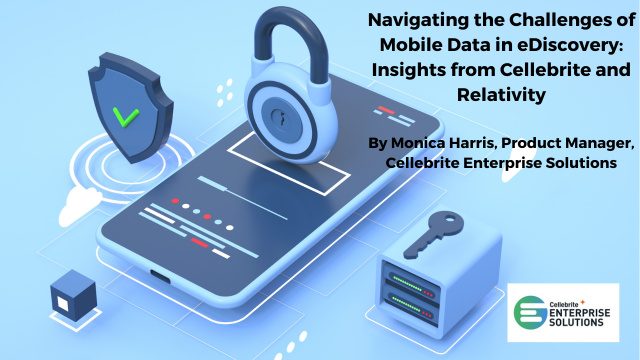Key takeaways from the on-demand webinar on ‘How to Simplify Modern Mobile Data Collection and Review’.

[Editor’s Note: This article was first published here on June 21, 2023 and EDRM is grateful to our Trusted Partner, Cellebrite Enterprise Solutions, for permission to republish.]
In recent years, the significance of mobile data in the field of law, particularly in e-discovery, has grown exponentially. Factors such as remote work and the COVID-19 pandemic have contributed to a dramatic increase in the percentage of cases involving mobile phones. Some estimates suggest that as much as 90% or 75% of cases now require mobile data collection.
This trend has led to a surge in mobile data-related cases in e-discovery, including significant sanctions against companies by the FTC. As mobile data continues to shape the legal landscape, industry leaders like Cellebrite and Relativity are collaborating to understand and address the challenges faced by their joint customers.
Unlike email, mobile data lacks preservation in place options, making it difficult to ensure data integrity.
Preservation Challenges: Preserving mobile data presents unique challenges compared to traditional data sources like email. Unlike email, mobile data lacks preservation in place options, making it difficult to ensure data integrity. Additionally, accessing the phones of custodians and targeting the most relevant data poses hurdles in the process. The rise of personal devices being used for work (BYOD) further complicates the task of targeting specific data, such as text messages related to case themes.
Relativity’s Approach to Mobile Data: Relativity, a prominent e-discovery software platform, has recognized the need to address new types of data, including mobile data. To tackle this challenge, Relativity introduced the Relatively Short Message Format (RSMF) to standardize the review of data from various chat applications that use different formats.
However, importing RSMF files into Relativity has its own challenges, particularly regarding the extraction of message-level metadata. While metadata extraction at the conversation level is available, extracting metadata at the individual message level remains an opportunity that Relativity looks to unlock in the future.
Read the entire original publication here.


